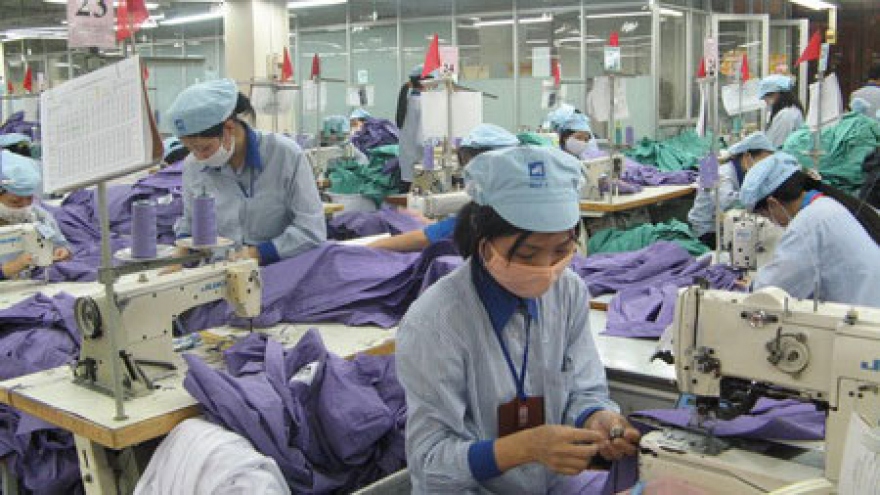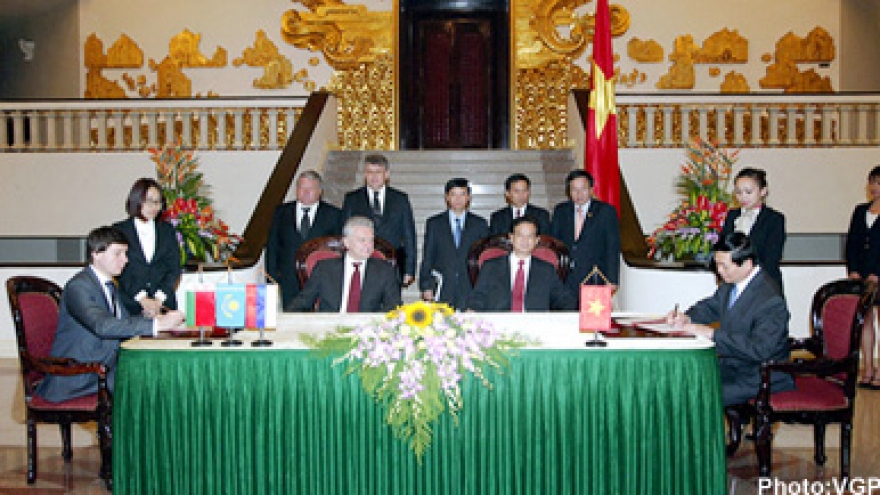Vietnam, EU FTA creates new dispute settlement court
VOV.VN - The government of Vietnam has successfully negotiated a free trade agreement (FTA) with the EU that incorporates a new method for the resolution of disputes between foreign investors and states.
 |
The FTA incorporates investment chapters that provide a range of protections for qualifying EU foreign investors and their investments of a nature usually found in bilateral and multilateral investment treaties.
A key difference, however, is that investment disputes arising under the new FTA will be decided by a permanent court, referred to in the treaty as a ‘Tribunal’.
Permanent investment court
The treaty establishes a separate investment court to resolve investor-state disputes. The Tribunal will comprise nine members, with three nationals appointed from each the EU and Vietnam alongside three nationals appointed from third countries.
To ensure their availability on short notice, the Tribunal members will be paid a monthly retainer or a regular salary if they serve on a full-time basis to be paid by the contracting states.
The treaty imposes specific ethical obligations on the Tribunal members. Their “independence is [to be] beyond doubt’; they shall not be affiliated with any government; they shall not participate in the consideration of disputes that would create a conflict of interest; and they must “refrain from acting as counsel or as party-appointed expert or witness in any pending or new investment protection dispute under this or any other agreement or domestic law.”
Cases will be heard by three-member divisions of the Tribunal selected by the President of the Tribunal on a rotation basis, and in a way that is intended to be random and unpredictable, with the chair of any division being a national of a country other than Vietnam or an EU Member State.
Disputing parties may, however, agree that a matter should be decided by a sole Tribunal member such as where the claimant is a small business or the compensation of damages claimed are relatively low.
Appellate mechanism
The treaty provides that a decision of the Tribunal may be appealed within 90 days of its issuance to an Appeal Tribunal.
The grounds for appeal include errors of law, manifest errors of fact, and those provided for in Article 52 of the International Centre for Settlement of Investment Disputes Convention.
The appellate body has the power to ‘modify or reverse’ the Tribunal’s decision or remand it back to the Tribunal for further consideration.
The FTA provides that the Appeal Tribunal will comprise six members, with two appointed from each of the EU and Vietnam, supplemented by two nationals appointed from third countries.
Potential benefits of the new system of dispute resolution
The FTA provides that the Tribunal shall render a final award within 24 months of a claim being submitted. Reasons must be given by the Tribunal to the disputing parties for any extensions of time beyond the two years.
The FTA provides that any appeal should not exceed six months, and in no case can it exceed nine months, with the result that the entire process should be completed within three years.
The new system could also facilitate enforcement of a favourable decision. The FTA requires the appellant to lodge security for the costs of the appeal and a reasonable amount to cover the substance of the dispute.
In other words, if one party loses and the damages are, say US$1 million, the losing party will be required to post all or a substantial portion of the US$1 million with the court prior to the appeal going forward.
Therefore, should an appeal fail, the amount deposited could be used to satisfy the award partially or in full, thereby alleviating the need for enforcement action.
Subject to a five-year transitional period for Vietnam, a final award rendered under the EU-Vietnam FTA is not subject to any challenge in Vietnam or the EU and is directly enforceable within those countries as though it were a decision of a court in the relevant contracting state where enforcement is sought.
Conclusion
The FTA will supersede the bilateral investment treaties concluded between 21 EU member states and Vietnam when the FTA comes into force in 2018. This marks a significant change in the level of substantive protection afforded to investors operating between these countries and the manner in which investor-state disputes are resolved.



